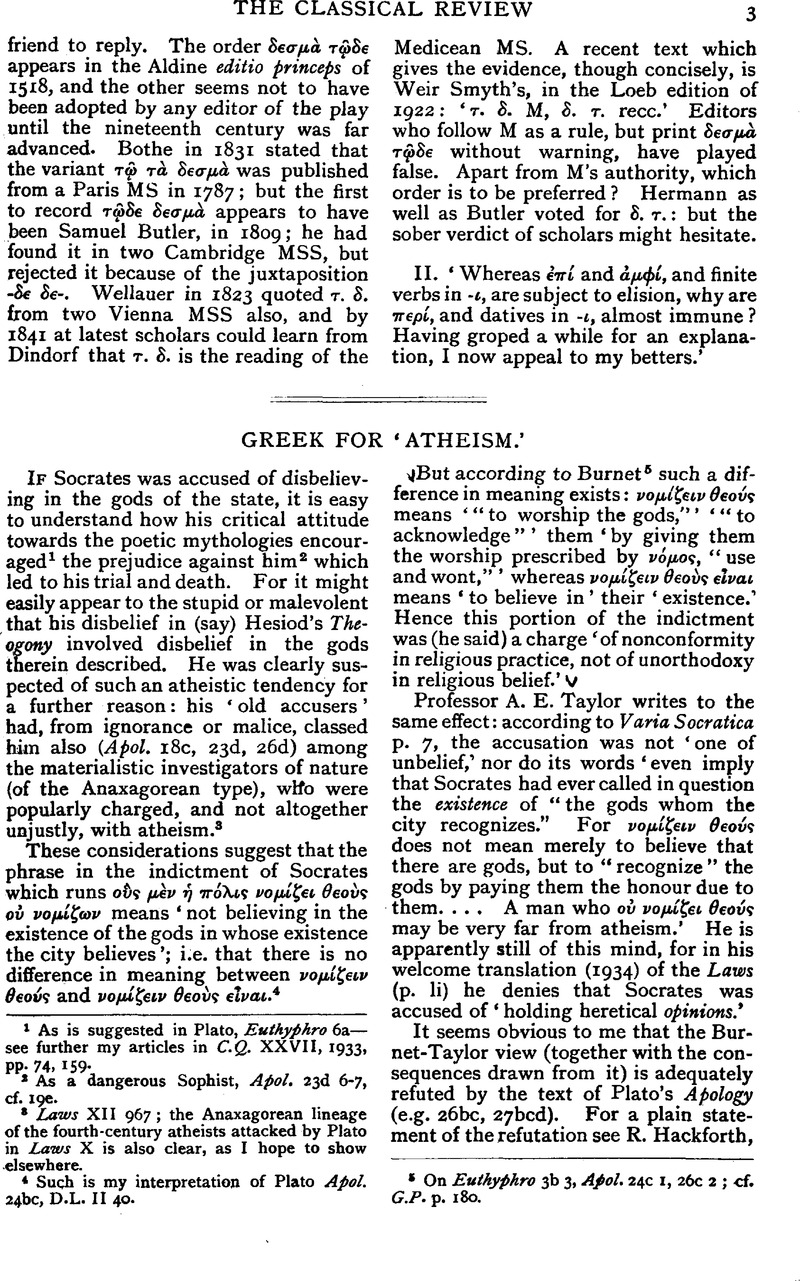Published online by Cambridge University Press: 27 October 2009

page 3 note 1 As is suggested in Plato, Euthyphro 6a—see further my articles in C.Q. XXVII, 1933, PP. 74. 159.
page 3 note 2 As a dangerous Sophist, Apol. 23d 6–7, cf. 19e.
page 3 note 3 Laws XII 967; the Anaxagorean lineage of the fourth-century atheists attacked by Plato in Laws X is also clear, as I hope to show elsewhere.
page 3 note 4 Such is my interpretation of Plato Apol. 24bc, D.L. II 40.
page 3 note 5 On Euthyphro 3b 3, Apol. 24c 1, 26c 2; cf. G.P. p. 180.
page 4 note 1 So Taylor, , Plato p. 490Google Scholar, Laws tr. p. lii.
page 4 note 2 Further, for Plato to reproach the atheists with not worshipping would be inconsistent with 908.9: the honest atheist who refuses worship is far less dangerous, and is far more leniently treated, than the hypocrite who hides his disbelief.